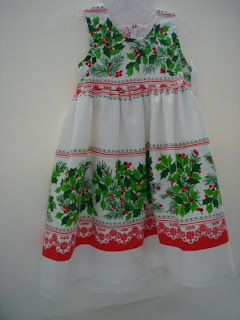"I pray I will never forget the good things that can happen
when our country is united."
"I pray to God that the day will never come when I no longer appreciate the privilege of being alive. If I have learned nothing more than appreciation during my 25 months overseas then my time has been profitably spent.when our country is united."
Tom Brokaw called them the Greatest Generation. He's quick to point out that they weren't perfect, but that they pulled together when times were tough. I've just finished reading a journal my dad wrote while he was a soldier during World War II. He was very sick when he got his orders to ship home, and he wasn't able to leave with the other guys. Finally he was loaded onto a hospital ship; that day he made his final entry in the form of a prayer.
"God, help me remember the heat rash, how I suffered with the miserable heartburn, the hundreds of cankers that I'm hospitalized with, the diarrhea, the impetigo that covers me and spreads so fast, and the unbearable heat.
"If my time overseas has been unpleasant, it has nevertheless been an experience I would never trade for a million dollars. I have acquired a sense of values and an appreciation of life that I never had before. I hope I shall always remember my experiences. I pray I'll always appreciate my country and what my friends died to protect."
While I've been reading Dad's journal, I've also been doing research on the Homefront during World War II. The Greatest Generation, whether at home or on the front lines, worked together to keep the peace. Make Do was the battle cry heard around the country. Here are some examples:
House thermostats were set no higher than 65 degrees in order to save fuel, and year-round daylight savings time also helped save electricity. Telephones were not used at night to leave phone lines open for the military. Food items like sugar, meat and butter were rationed.
The government needed rubber badly, so there were neighborhood rubber drives. People donated car tires, garden hoses, buckets of galoshes, even rain slickers.
Girls bobbed (cut off) their cotton tights in an effort to save material. The shorter stockings were called "bobby socks." Metal was needed for the war effort, so new styles of clothing had buttons rather than zippers. Zippers were ripped out, replaced with snaps, and donated. Women took pride in remaking their old clothes into new styles, and there were even patterns for turning tablecloths into dresses.
To save on rubber, underpants were often made with ties rather than elastic waists. Because silk and nylon were used to make parachutes there was none to spare for ladies' stockings. Women used leg makeup instead, and eyebrow pencil was used to draw a stripe on the back of each leg to look like a seam.
Cotton and wool material could not be wasted on civilian clothes, so there were no more frilly ruffles or full skirts. Hemlines were shorter, too. A law was passed limiting the amount of fabric that could be used in sleeves and hems. Removable collars called dickeys were worn instead of blouses under sweaters to save material. Cloth diapers were in short supply and rubber pants non-existent, so even babies made sacrifices.
The most shocking new style of all was the two-piece bathing suit, which used less fabric than the more modest one-piece suit popular before the war.
Weddings were planned overnight when a soldier came home on leave. Last minute bridesmaids borrowed dresses from last week's wedding, and neighbors brought the food. Since silk was unavailable, brides were innovative and many wedding dresses were styled from surplus parachutes.
What made this generation great? I'm sure there was some muttering and complaining going on about shortages and rationing. Mothers must have been frantic and frazzled with worry over sons and husbands, working to support the war effort and their families, making do with chipped beef on toast and public transportation, living for three-week-old censored letters from loved ones. Soldiers left school early, ate powdered eggs and slept wrapped in mosquito netting. It doesn't sound fun. How did they rise above it? Why were they so great?
I think it was because they were unified in a cause they believed in. The chips were down. Differences were shelved for a time, and cooperation prevailed.
Tonight President Obama called on us all to unite our efforts and bring about "a better day." How bad do things have to get for us to come together? Are we there yet? Can we sacrifice our suspicion, our cynicism, our pride? Will we be great?











5 comments:
Fantastic post. I hope we are the next Greatest Generation.
Very interesting. I really wonder whether we can come together like the country did in WWII. I'm trying to figure out why we're so different now.
I wonder if your dad knew my uncle while in Australia.
I love the photos of the dresses!
what a great post! do we have to be in a world war for people to put aside political differences? Maybe it is because that generation was used to going without and the last few generations are used to getting everthing now! I did like the dresses! I enjoy making something out of nothing.
A most excellent, thought-provoking post, Marty! I agree with you in wondering how bad it has to get before we pull together as a nation! I'd love to watch a press conference and hear the opposing side (whichever that is) just once concede a point. Until that happens, I'm just not sure we'll ever be close.
Love this and the pics of Grama and Grandpa!
Post a Comment